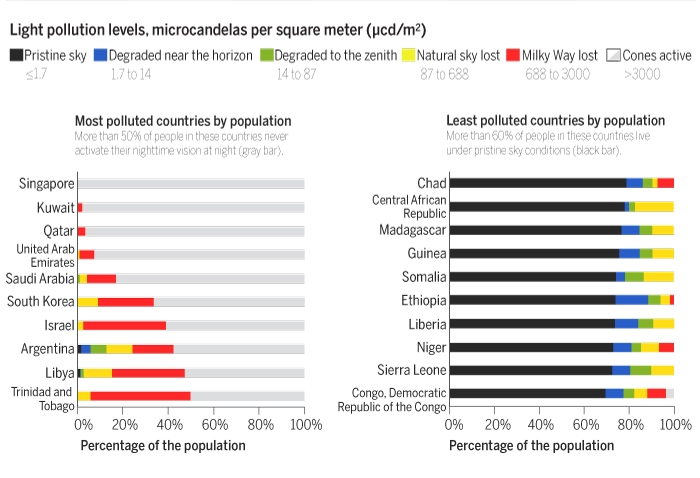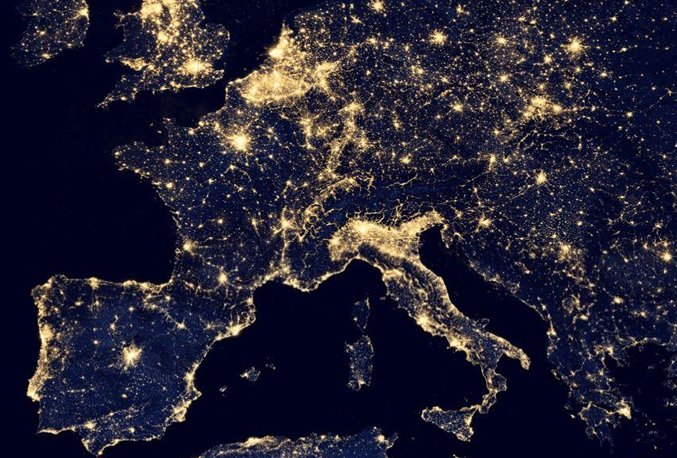You may find yourself looking at the sky during these summer nights, but where are the stars at?
Light pollution in our cities is a serious issue. In a recent study conducted by an Italian and American research team, it has been found out that more than 83% of the world’s population experiences light-polluted night skies, including more than 99% of all Europeans and Americans. The countries with the worst skies are Italy (yes you are reading right) and South Korea.

You can see this horrifying data looking at the following link of the NASA Blue Marble project, showing light pollution around the globe (the most recent image however is from 2012) http://www.blue-marble.de/nightlights/2012
But what are the real hazards of light polluted skies?
According to various researches the main negative impacts are the following:
- Increasing energy consumption: in an average year in the U.S. alone, outdoor lighting uses about 120 terawatt-hours of energy, mostly to illuminate streets and parking lots. That’s enough energy to meet New York City’s total electricity needs for two years!
- Disrupting the ecosystem and wildlife: light pollution disrupt natural cycles of many species of birds, insects, plants and night animals, interfering with their reproduction, hunting activities and migration patterns!
- Harming human health: increasing risks for obesity, depression, sleep disorders, diabetes, breast cancer and anxiety are related to bad night luminosity! It also alters the circadian rhythm having severe consequence on our sleep-wake timing.
- Effecting crime and safety: More light does make us feel safer but it does not make us safer. Different studies in English or American cities concluded that more outdoor lightening does not deter crimes!

Moreover, the lack of darkness is causing a huge loss in terms of cultural heritage for current and future generations. Since ancient times stars have inspired science, religion, philosophy, art and literature. Just looking at them we have been able to navigate and to explore seas, we learned about our expanding universe, not to recall the beautiful Van Gogh’s painting “Starry Night” or the infinite numbers of songs, poems and sonnets “written” under the stars.
Thinking that the majority of us will never experience a brimming night and appreciate the vastness of the universe is just as sad as terrible.
Once Stephen Hawking said: “Remember to look up at the stars and not down at your feet. Try to make sense of what you see and wonder about what makes universe exist. Be curious”
Well Dr. Hawking we all would like to follow your advice, but now how can we do that?



